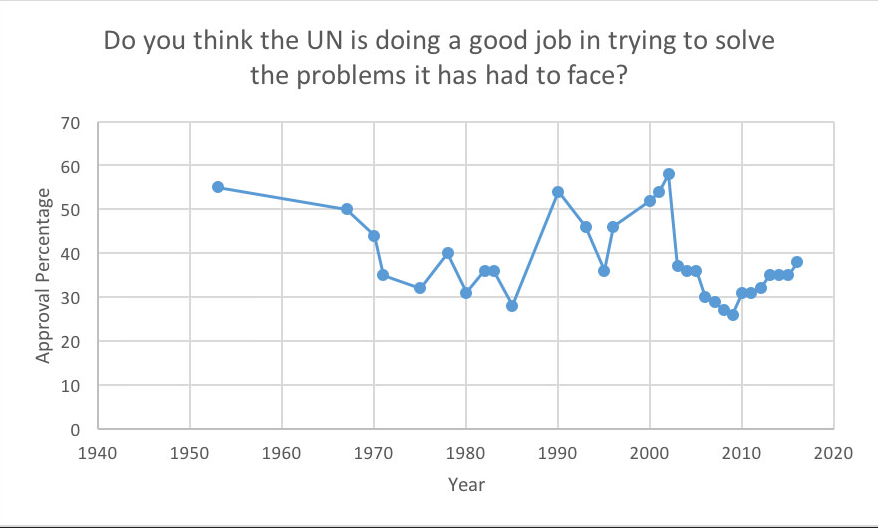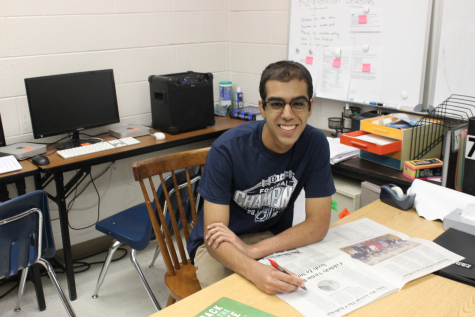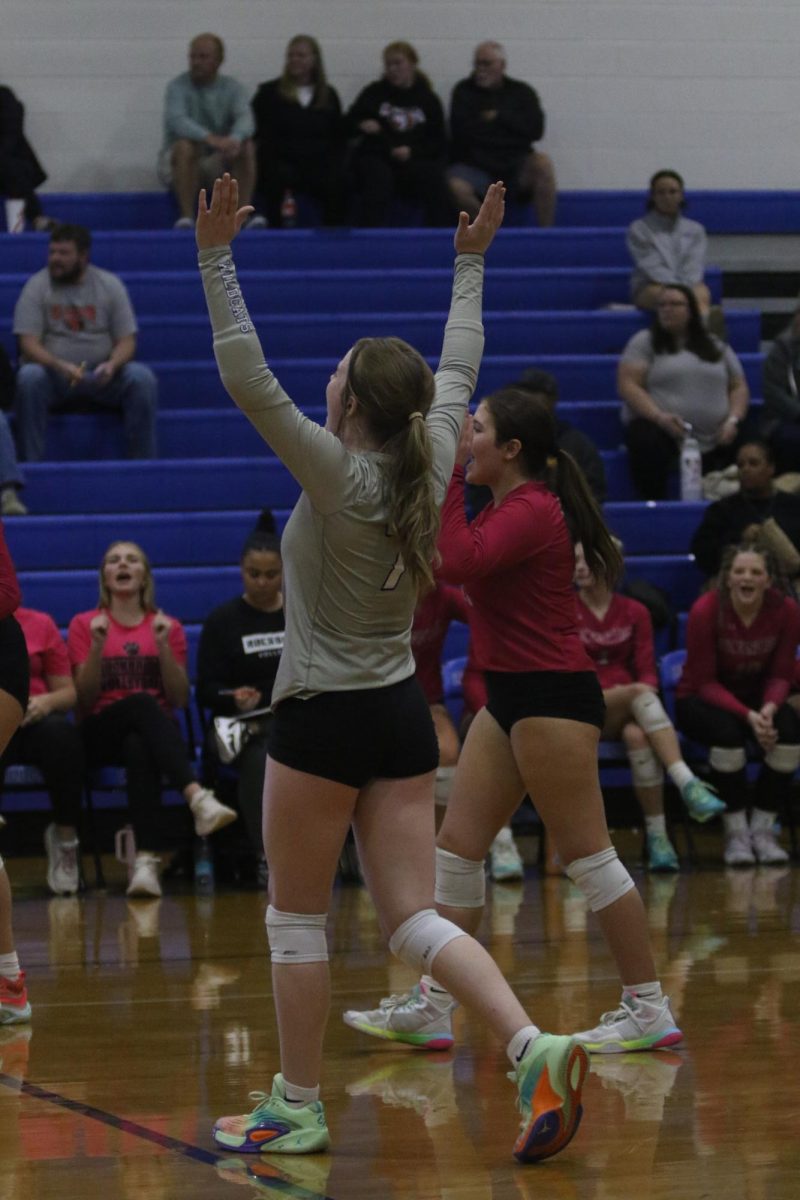UN Desperately Needs Reform
Within the decade, the UN approval rate remains to be under 50 percent.
March 22, 2017
In 2017, Portugal’s former prime minister António Manuel de Oliveira Guterres will succeed Ban Ki-Moon as the next United Nations (UN) Secretary-General. Guterres will have to work on reforming the key foundations of the United Nations in order to modernize this outdated, ineffective, and unfair organization.
The United Nations is the world’s main international governing body. Its goal is to promote international cooperation and peace among all nations, in order to never have another world war. In the 70 years since the UN was founded, it has helped both developed and developing countries in numerous ways, including protecting human rights and promoting sustainable energy.
The United Nations operates the same way it has been since its creation after World War II. As new and more complex problems face our world today, the United Nations must evolve and undergo changes in order to modernize and solve these problems.
One reform that is essential within the United Nations is with the power held by the Security Council and its five permanent members. The Security Council is one of the six principal parts of the UN and is responsible for overseeing international peace and conflicts. The Security Council contains 15 members, five of them being permanent: Russia, the United Kingdom, France, China, and the United States. The other ten are nations that rotate every two years. These permanent members hold extreme power and can dictate what gets passed during meetings.
World leaders and problem-filled regions have changed drastically from 1945. The five permanent members are no longer the sole major powers that existed following World War II. The Security Council must adapt by widening its representation and adding more permanent countries.
“I do believe that the lack of permanent representation for many developing countries is an issue that should be revisited,” said Tyler Dickovick, a politics professor at Washington and Lee University.
In an interview, Dickovick expressed the additional concern of deciding which countries would receive permanent power if the Security Council is changed.
“In principle, it might seem only just that the developing countries would have representatives with the same rights of veto that the historically powerful countries have. Yet we must acknowledge that there will be fundamental disagreements within regions (such as Africa and Latin America) about which countries should represent a continent,” said Dickovick. “Should Brazil, as the largest country in Latin America by population, have a permanent seat to represent that continent? Many other countries, such as Mexico or Argentina, would deem that to be unfair and unrepresentative.”
Another issue that caused many problems within the United Nations is the veto power held by the five permanent members. They have the ability to block any resolution proposed that may negatively affect their country or go against their foreign policy. The majority of states believed that the veto is unjust and undemocratic. They have also been thought to be the main reason why the UN could not respond to many humanitarian crises, such as ones found in Rwanda in 1994 and Darfur in 2004.
While the veto should not be completely removed, as it holds value in safeguarding the interest of valuable world powers, there are ways in which it could be improved and changed. To begin addressing the problem, Guterres first must look at the five permanent members on the security council and examine their legitimacy for holding a permanent spot.
“The veto power held by the United Kingdom and France is not reflective of the current economic or strategic power of those countries,” said Dickovick. “The United States, Russia, and China can lay claim to being the three most strategically powerful countries in the world at present, albeit each for slightly different reasons. In a sense, the current representation and veto power on the Security Council reflects the ‘great power’ status of certain countries and the former great power status of others.”
The Security Council just contains some of the numerous problems found within the UN as a whole. Other issues, such as more funding towards emergency responses and gender issues within the organization, must be dealt with and reformed also.
Additionally, Guterres should consider how much each of the five permanent countries on the Security Council contributes money towards UN projects.
“There is the serious question of funding UN activities, including the fact that United States regularly falls behind and does not pay its dues,” said Dickovick. “The prospect of creating a new financial foundation is remote, but it would certainly put the organization on firmer ground.”
The United Nations is the most powerful international organization that work with and solve global issues. Terrorism, climate change, the refugee crisis, and gender equality are just some of the global issues facing our world and they need an even more global institution to solve them. Guterres must work to transform the UN back into a transparent and fair democratic decision-making body that is capable and fit to face the challenges and threats of the 21st century.








